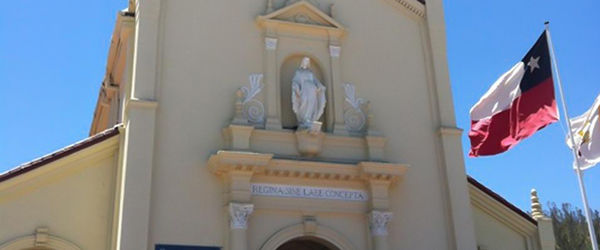One afternoon last summer, as I sat in my office at work, I began to lose vision in one eye. A blood vessel crossing a months-old retinal repair began to leak. First I saw a dark line, like an eyelash. A black mist, like a thin veil, soon followed. By the time I got home and lay on my bed, it was like lava, thick dark fingers sliding across my retina with startling clarity. I awoke the next morning to a left eye that was completely dark. I was blind in one eye.My doctor was not overly concerned. He told me it would likely clear within a couple of weeks, at which point he would seal the errant vessel with liquid nitrogen. You might wonder how someone would get liquid nitrogen to the back of a person’s eyeball. I know I did. But in the end it didn’t matter, because my eye did not clear.Of course I thought of Christ. Healing the blind was one of the hallmarks of the Messiah, one of the ways people could recognize Him when he came. I thought of Bartimaeus, sitting on the roadside in his own personal darkness, calling out, “Jesus, son of David, have pity on me.”But I wasn’t blind. I still had one eye, my “good” eye, the other having always been weak. I could still drive, go to work, watch television in the evening, read my book before bed. My friends commented that they couldn’t see anything wrong, and indeed they could not. It was all inside, visible to only myself and to the doctor. I could go about my life with my good right eye. A person can go through life blind in one eye, but nobody would choose to do so. Why, then, are we satisfied to approach God that way, with one eye shut?Yet I found that I missed the left one. At Mass on Sunday, I couldn’t see my son sitting next to me. Once, in a parking lot, I stepped in front of a moving vehicle because I didn’t know it was there. When changing lanes on the freeway, I had to turn my head to see the rearview mirror, cranking my neck even further to check my blind spot.My blind spot.With Christ, loss of vision was always more than a physical ailment. It was a metaphor for spiritual blindness, an inability or unwillingness to see the beauty of God, the will of God, the totality of God. Few of us would consider ourselves to be spiritually blind. We love our families. We go to church. We believe in God, the Father Almighty, and all the other things we profess in the creed. We say our prayers.Yet I wonder if sometimes we might be blind in one eye. We forgive, except for so-and-so who did such-and-such to us. We love our neighbor, except for this group or that, the ones with those opinions we can’t stand. We believe what God teaches us through the Church, except for the parts we don’t want to believe, the parts that call us to change.A person can go through life blind in one eye, but nobody would choose to do so. Why, then, are we satisfied to approach God that way, with one eye shut?My eye never did clear on its own. Eventually my doctor recommended a surgical procedure called a vitrectomy. My wife drove me to the hospital in the pre-dawn darkness. By noon I was back home, with a bandage over my eye. When the doctor removed it the following day, everything was blurry. But within a couple of days I could see. I could see!It is hard to describe how excited I was to watch my vision return. I could count my fingers. I could see my wife and kids, their faces, their eyes. I could look in the mirror, and my once-blind eye could see itself.It surprised me, just how happy I felt. Maybe this was a little bit of what Bartimaeus must have experienced on the road outside Jericho. His request of Jesus had been simple and straightforward: “Master, I want to see.” I was reminded of another man in Mark’s Gospel, a father whose son had been possessed by a demon that threw him into convulsions. He wasn’t sure that Christ could help him, but when the Lord challenged his lack of faith he responded with one of my favorite lines in Scripture. “I do believe,” he said. “Help my unbelief!”Lord, I do see. Help my partial blindness. Open my eyes, both of them, to your will for me. Help me to see the beauty of your creation, the wonder of your love for me, the path that you would have me walk. Help me to see your Image in all men, women, and children, in each person I meet as well as those in far distant lands. Help me, in the words of the familiar “Godspell” song, “to see Thee more clearly, love Thee more dearly, follow Thee more nearly, day by day.”After all, that’s the most important part of the Bartimaeus story. It’s not just that he received his sight from the Master. It’s that he got up, and followed him on the way.David La France attends St. Finbar Church in Burbank, where he teaches confirmation.{gallery width=100 height=100}gallery/2012/1109/blindness/{/gallery}

